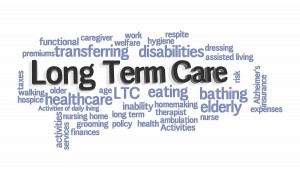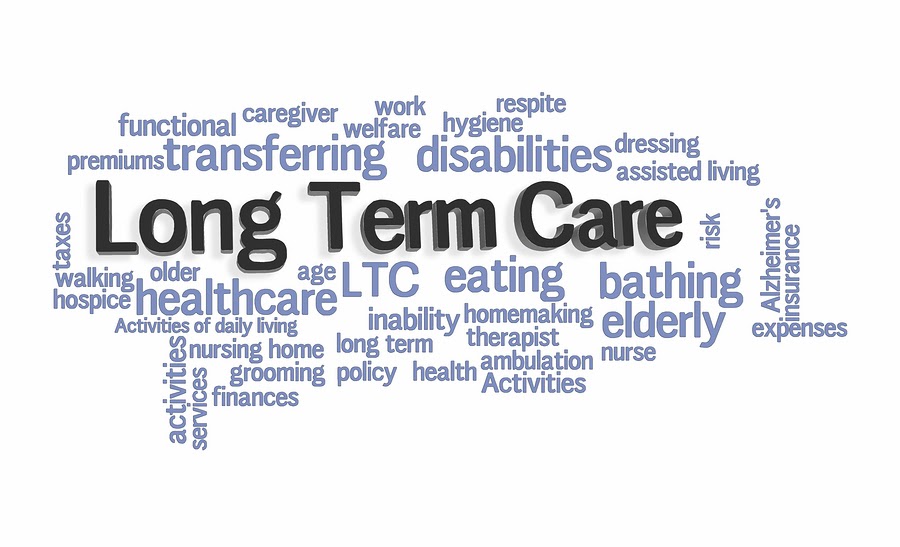Long term care is increasingly an issue that many families must resolve. However, many families do not understand what long-term care is and confuse it with medical care. Long term care is not medical care. Long term care is the supports and services an individual must have to meet their personal care needs and maintain their health, safety and well-being when they are unable to do it for themselves.
Long term care services include help  completing activities of daily living or ADLs. Activities of daily living include bathing, dressing, transferring, eating, continence, and using the bathroom. When a long term care insurance company or a public benefit program evaluates an individual to determine if they qualify for benefits to pay for long term care services, it is determining how many of these activities with which the individual needs help.
completing activities of daily living or ADLs. Activities of daily living include bathing, dressing, transferring, eating, continence, and using the bathroom. When a long term care insurance company or a public benefit program evaluates an individual to determine if they qualify for benefits to pay for long term care services, it is determining how many of these activities with which the individual needs help.
However, long term care services are not limited to just assistance with ADLs. Services also include help with everyday tasks like shopping, housekeeping, making meals, laundry, transportation to and from medical appointments, medication management, and assistance with using the telephone. As mental function declines, long term care services can also include supervision to ensure the individual does not engage in activities that endanger their health, well-being or safety.
Individuals who need long term care may also need help with a variety of personal activities such financial decisions, money management, health care decisions and supervision of the service providers who are providing care in the home.
Long term care services can be provided by family members or professionals. Long term care is paid for in five primary ways, which are outlined in our previous post: How Will You Pay for Long Term Care. For more information about long term care, visit the US. Department of Health & Human Services’ long term care website. If you or your family members are dealing with long term care issues contact an elder law attorney in your area. You can find a local elder law attorney by contacting the National Academy of Elder Law Attorneys.


